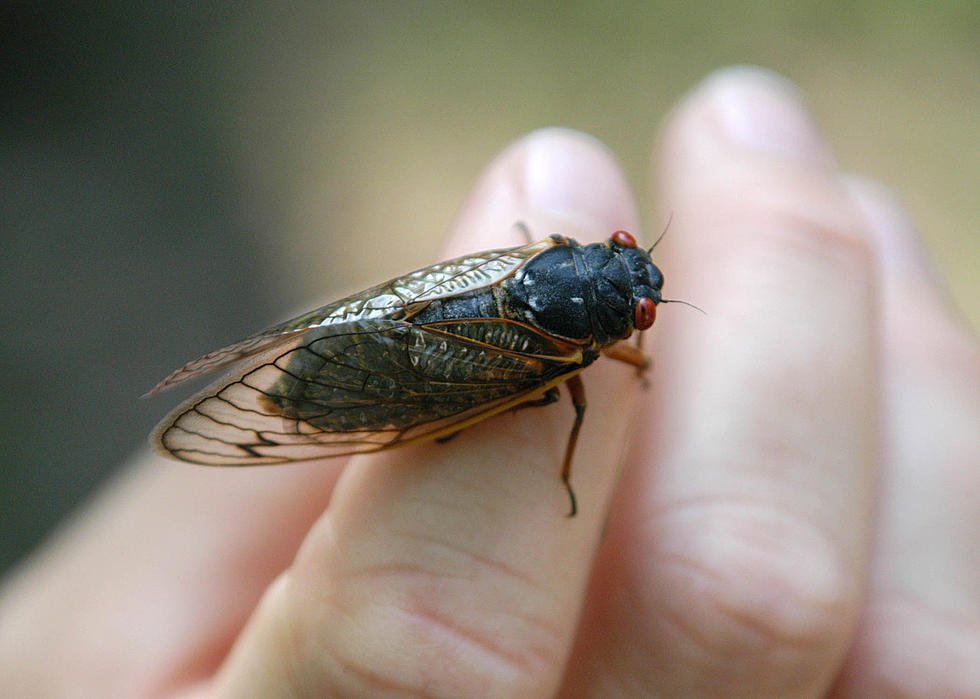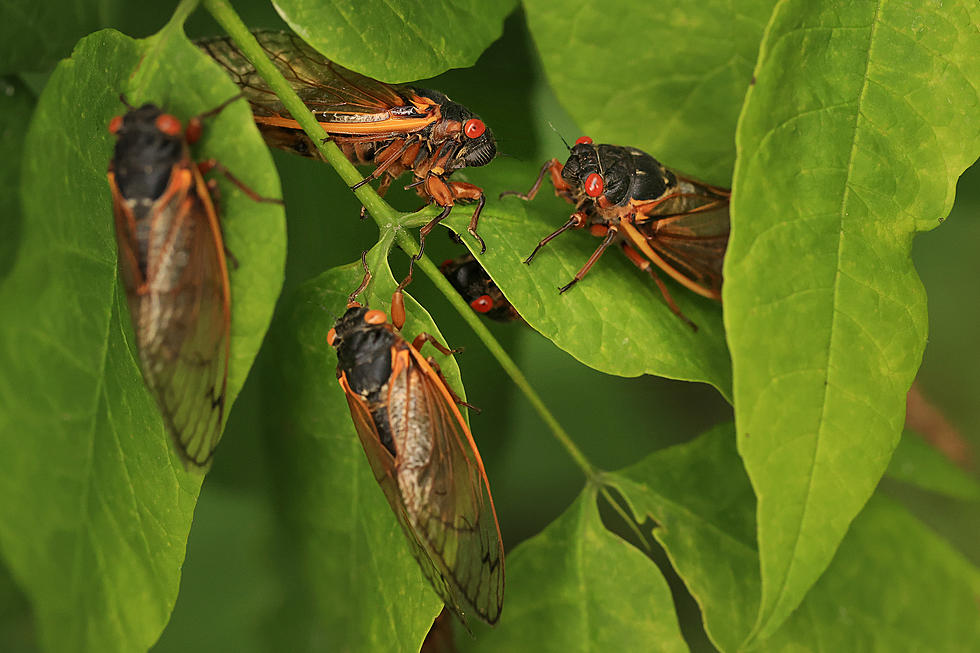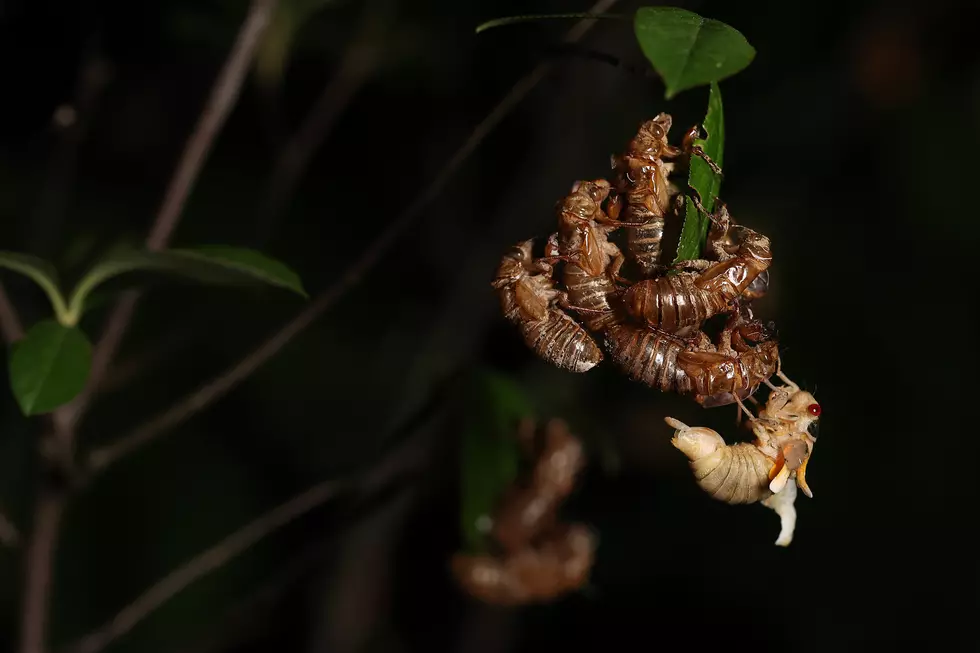
NJ dog owners beware of cicada snacking
Dogs will eat anything, right? I knew someone whose Shiba Inu literally ate a hole two feet in diameter in their kitchen floor. Just because.
So is a dog eating cicadas any big deal? With the 17 year Brood X cicadas emerging in various parts of New Jersey there’s something you ought to know. They can harm dogs and there are literally billions of these things. Back yards can look like one giant writhing cicada blanket completely covering the grass. And their sound can attract a dog’s attention and their crunchy shell can attract a dog’s sensory curiosity.
Now if people have been known to eat cicadas because they’re packed with protein then that should be like health food to a canine, right? Not so. A few cicadas like five or six won’t do anything bad according to an article on nj.com. But more than that and your pooch could be in for trouble.
In large volumes those crunchy shells can irritate a dog’s stomach lining. If they eat more than a few, and they tend to, it can lead to vomiting and diarrhea, poor appetite and lethargy. Some dogs eat so many they get a blockage in their intestinal tract and may need emergency medical care. Worse yet, while very rare there have been dogs known to suffer allergic reactions to eating cicadas and will go into anaphylaxis.
If all this makes you question getting a dog to begin with and you think a cat would have been easier, know that this can occur with cats, too. Cats generally won’t eat as many but if they do they also can have issues.
If it happens, don’t panic. Cicadas are not toxic, they don’t bite, and they aren’t poisonous. Your pet just may get really sick for awhile. If you catch your dog eating one let them finish chewing and then bring them back inside your home to cut off the buffet.
The post above reflects the thoughts and observations of New Jersey 101.5 talk show host Jeff Deminski. Any opinions expressed are Jeff Deminski's own.
9 New Jersey debates that will never end
How to start your first garden
More From New Jersey 101.5 FM









